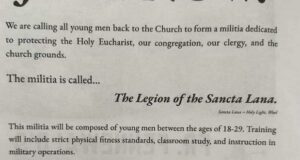Right-to-work ballot measures may be on the ballot soon. A resolution passed in the Senate at roughly 5 a.m. Friday after a nearly 12-hour filibuster would move the voting date for a ballot measure to make Missouri a Right-to-Work state from November to August on a union-backed ballot measure. Later the same day the House gave initial approval to a constitutional amendment that would make Right-to-work the law of the land.
A Right-to-work law would ban union membership as a requirement for employment at workplaces.
The two measures could be fast-tracked as they move to the other chamber in the final week of the legislative session.
Republicans have already raced the constitutional amendment through the lower chamber. When a ballot initiative by Right-to-work supporters failed to meet a May 6th deadline to collect needed signatures, Republicans in the House launched into action.
A resolution filed by Kansas City area Rep. Rick Brattin, R-Harrisonville, in January suddenly was assigned to a committee for a hearing. The measure moved through two committees last Wednesday before receiving action on the House floor Friday.
Brattin himself told the Kansas City Star that he was stunned at his bill’s sudden speed of movement.
“This late in the session, even when it was referred to committee, I just assumed it was dead,” said Brattin.
Republican Governor Eric Geitens’ non-profit A New Missouri Inc. funneled most of the money into the group behind the pro Right-to-work ballot effort. According to documentation filed with the Missouri Ethics Commission, A New Missouri donated $500,000 to that organization, Freedom To Work, just last Tuesday.
The constitutional amendment currently in the House would require a public vote for passage. Thus, it’s possible Right-to-work measures could be on the ballot in both the August primary and the November general election.
By moving the pro-union ballot referendum to August, Republicans contend they’re trying to get the issue settled earlier to give businesses certainty moving forward.
But they may also be looking at conditions they perceive as favorable: Primaries in August historically have had lower turnout and there’s some research showing Republican voters tend to be more conservative in such elections.
They may also have calculated that pro-union voters, who tend to be Democratic, will be more motivated in the general election when Democratic U.S. Senator Claire McCaskill is up for reelection.
Senate Majority Floor Leader Mike Kehoe, R-Jefferson City, thinks the Right-to-work measures in the legislature represent the party’s platform.
“This is something that we will absolutely disagree with our friends on the other side of the aisle that every day we can move forward the opportunity for Missouri to be a Right-to-work state, we believe it’s an economic advantage for the citizens and businesses here,” said Kehoe.
After being elected in 2016, Governor Greitens joined the Republicans in the legislature to whisk a Right-to-work bill into law after such efforts were vetoed previously by then-Democratic Gov. Jay Nixon.
When Greitens signed the Right-to-work measure into law in February 2017, union supporters were given ample time to gather signatures to get their own measure, known as Proposition A, onto the ballot.
Proposition A would be moved from November to the August primary if the House passes the resolution approved in the Senate.
Senate Minority Leader Gina Walsh, D-Bellefontaine Neighbors, is a fierce supporter of organized labor, having spent 35 years as a union member. She’s president of the Missouri State Building & Construction Trades Council and serves on the executive board of the Missouri AFL-CIO.
Walsh thinks Republicans are doing the work of business interests and that voters won’t be swayed by such moves.
“These are desperate moves by a panicked group of special interests who think that they have to cheat to win,” said Walsh. According to an Emerson College poll conducted in late April, Proposition A to overturn the Right-to-Work law is tied at 40%, with 20% undecided. That’s a big turnaround from 1978 when Amendment 23 would’ve made Missouri a Right-to-work state. It was resoundingly rejected by voters 60%-40%.
Kehoe contends the business and work environment has changed over the past 40 years, and that voters have taken notice.
“The employment market now, I think employers have gotten smarter, and smarter of how they treat their employees and what kind of benefits they offer them, Kehoe said. “And they understand what it takes to be competitive with traditional union shops, so the playing field has leveled out just because of competition for good employees.”
Republicans now have five days to get one or both resolutions – the constitutional amendment and the voting date change for Proposition A – across the finish line and on the ballot this year.
 Metro Voice News Celebrating Faith, Family & Community
Metro Voice News Celebrating Faith, Family & Community








